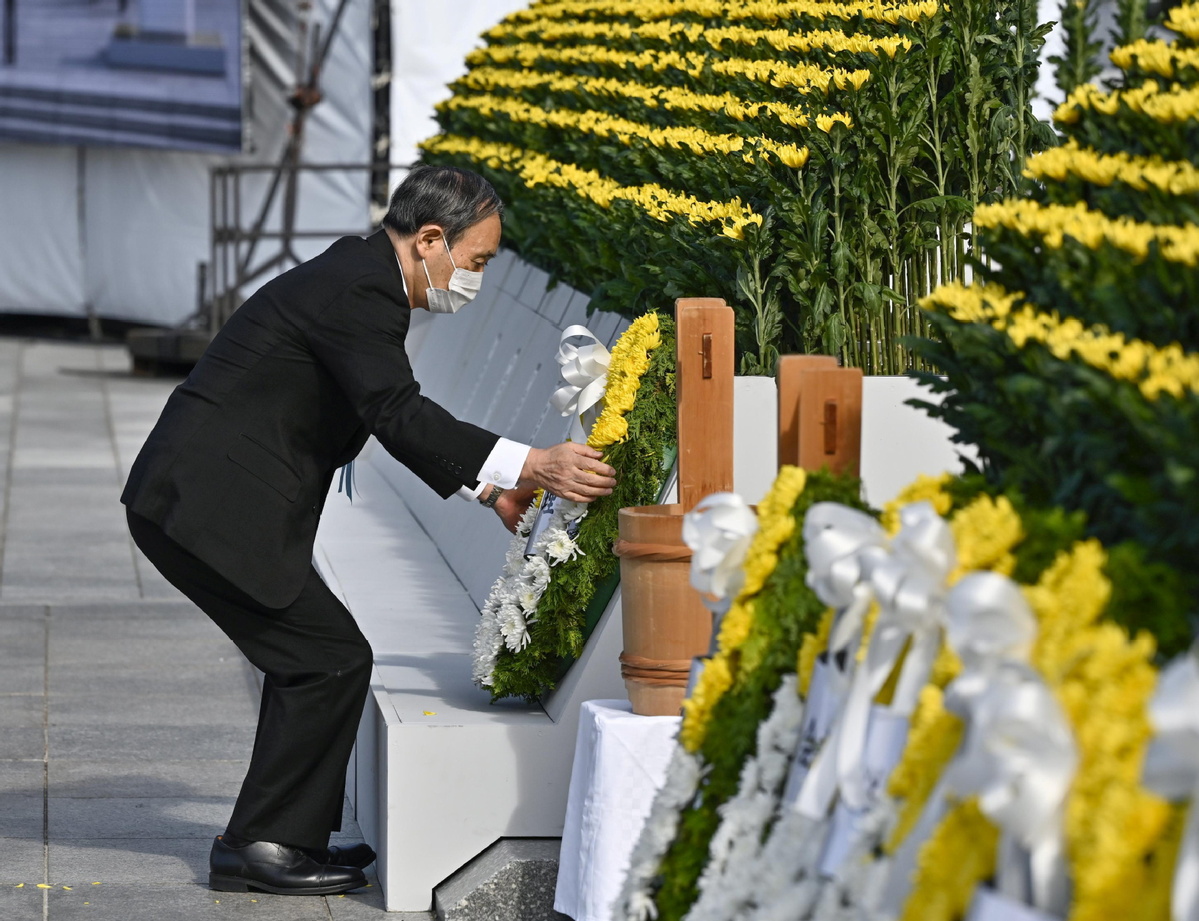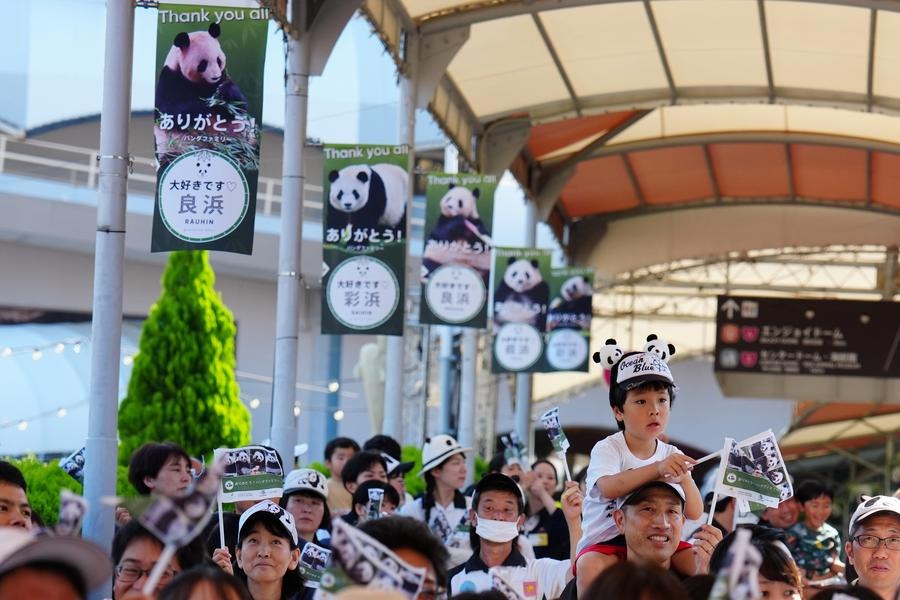Japan marks 76th anniversary of Hiroshima atomic bombing


Leaders call for progress toward a world free of nuclear weapons
TOKYO-Hiroshima marked the 76th anniversary of the world's first atomic bombing on Friday, as the mayor of the Japanese city urged global leaders to unite to eliminate nuclear weapons, just as they are united against the coronavirus.
Mayor Kazumi Matsui urged world leaders to commit to nuclear disarmament as seriously as they tackle the pandemic that the international community recognizes as "threat to humanity".
"Nuclear weapons, developed to win wars, are a threat of total annihilation that we can certainly end, if all nations work together," Matsui said. "No sustainable society is possible with these weapons continually poised for indiscriminate slaughter."
Virus concerns meant the general public were once again kept away, with the ceremony broadcast online instead.
On Thursday, United Nations Secretary-General Antonio Guterres called for progress toward a world free of nuclear weapons in a video message to mark the anniversary.
"I am deeply concerned by the lack of progress toward the goal of a nuclear-free world," he said.
"I call on all states that possess nuclear weapons to adopt risk reduction measures, individually and jointly. The only guarantee against the use of nuclear weapons is their total elimination."
The United States dropped the world's first atomic bomb on Hiroshima on Aug 6, 1945, destroying the city and killing 140,000 people. It dropped a second bomb three days later on Nagasaki, killing 70,000. Japan surrendered on Aug 15 that year, ending World War II and its nearly half-century of aggression in Asia.
But countries stockpiled nuclear weapons during the Cold War and a standoff continues to this day.
The Treaty on the Prohibition of Nuclear Weapons took effect in January after years of civil effort joined by atomic bombing survivors, or hibakusha. Though more than 50 countries have ratified it, the treaty notably lacks the US and other nuclear powers as well as Japan, which has relied on the US nuclear umbrella.
Matsui renewed his demand that his own government immediately sign and ratify the treaty and join the discussion, to live up to the long-cherished wish of hibakusha. He also demanded Japan to provide productive mediation between nuclear and nonnuclear weapons states.
Prime Minister Yoshihide Suga, who attended the ceremony in Hiroshima, did not mention the treaty but instead stressed the need for a more "realistic" approach to bridge the nuclear and nonnuclear weapons states. Suga later said he does not plan to sign the treaty.
"The treaty lacks support not only from the nuclear weapons states including the United States, but also from many countries that do not possess nuclear arms," Suga said. "What's appropriate is to seek a passage to realistically promote nuclear disarmament."
Lasting injuries
Suga also apologized for inadvertently skipping parts of his speech including a pledge to pursue efforts toward achieving a nuclear-free world as head of the world's only country to have suffered atomic attacks and be fully aware of its inhumanity.
Many hibakusha have lasting injuries and illnesses linked to the bombs and radiation exposure, and faced discrimination in Japanese society.
The government began to medically support certified survivors in 1968 after more than 20 years of effort by the survivors.
According to the government, 127,755 survivors, whose average age is now almost 84, are certified as hibakusha and eligible for government medical support as of March.
Suga announced last month that the medical benefits would be extended to 84 Hiroshima survivors who had been denied aid because they were outside a government-set boundary. The victims were exposed to radioactive "black rain" that fell in the city after the bombing and fought a long legal battle for their health problems to be recognized.
The ceremony at the Hiroshima Peace Memorial Park was significantly scaled down because of the coronavirus pandemic.
Agencies - Xinhua

































